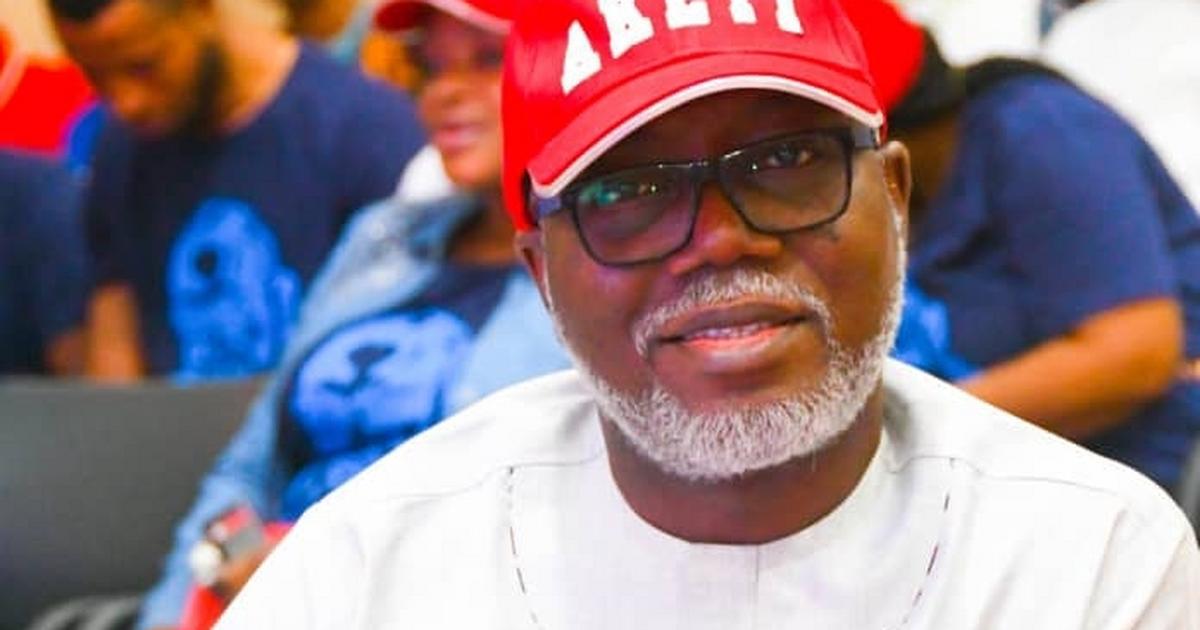A chieftain of the ruling All Progressives Congress (APC) and Director General of the Progressive Governors Forum (PGF) has called for the revival National Labour Advisory Council (NLAC) to address challenges of negotiation between Labour leaders, employers and the government.
The PGF boss said such model was used around 2005 for instance to resolve the challenge of amending pension law.
According to Lukman, the campaign for the retention of minimum wage in the exclusive legislative list under the 1999 Nigerian Constitution as amended, is being handled by the leadership of organised labour, especially Nigeria Labour Congress (NLC) based on deliberate distortions of facts.
In a statement released Friday in Abuja, the APC chieftain said the current debate about whether states can make minimum wage laws is basically about correcting the distortion in terms of applying the principles of minimum wage fixing as provided in ILO Convention 30 of 1928, even as he appealed to leadership of organised labour, especially NLC, to “stop promoting false information.
“What is required to address such problem is to revive the National Labour Advisory Council (NLAC), which normally has representation from labour, employers and government. It used to serve as the tripartite body in Nigeria for the resolution of major labour challenges. As things are, NLAC is hardly existing.
“If we have NLAC, why can’t we have members agree to all the variables determining minimum wage in the country – productivity, conditions of living and affordability, based on which the national minimum is reviewed on annual basis being the proposed benchmark for the country? The National Bureau of. Statistics (NBS), National Salaries, Wages and Income Commission and National Productivity Centre (NPC) can handle the task of providing information about the variables of productivity, cost of living and affordability. With objectively computed information, the process of achieving consensus that highlight the minimum threshold for wages can be handled very effectively.
“Agreement under NLAC can serve as the federal minimum wage. Once agreement is reached at the level of NLAC, a prototype minimum wage bill can be developed and sent to National Economic Council (NEC), chaired by the Vice President of the Federal Republic with Governors of the 36 states as members. Following consideration and adoption by NEC, states can then domesticate provisions of the agreement as contained in the prototype bill based on their peculiar circumstance.”
He said the fourth distortion that needs to be corrected is the proposal to transfer minimum wage to the concurrent legislative list is not to stop the payment of N30,000 minimum.
“Although, many state governments and private employers are having difficulty implementing the N30,000 minimum wage, we should separate the problems associated with implementing agreements from the bigger challenge of correcting wrong procedure used in fixing minimum wage in the country. Problems of implementing agreements can be addressed with reference to invoking provisions of Nigerian arbitration laws, which is what ILO Convention 30 of 1928 recommends. As a nation, we have arbitration law. Why is the leadership of organised labour not taking advantage of provisions of our laws to enforce implementation of minimum wage law?”
The APC chieftain called on NLC leadership to retrace their steps and return to the path of truth and democratic engagement to win the support of Nigerians, including elected representatives, the better, adding that “political bullying is antithetical to democracy and is counter productive to the struggles for decent wage!”
The DG explained that ILO Convention allow for flexibility for each country to apply the guiding principles to its circumstances through consultative processes that take into consideration all the interests in the country’s labour market.
“One of the claims is that moving minimum wage from the exclusive legislative list to the concurrent list in the 1999 Nigerian constitution will contravene provision of the International Labour Organisation (ILO) Convention, which Nigeria is a signatory.
“While it is true that ILO Convention No. 30 of 1928 Minimum Wage-Fixing Machinery Recommendation provide the guiding principles for the determination of minimum wages in all countries, no where was it stipulated that the process should be the exclusive preserve of federal authorities. Anyone interested can confirm the details.
“The guiding principle is ‘to ensure that each Member ratifying the Convention is in possession of the information necessary for a decision upon the application of minimum wage-fixing machinery, the wages actually paid and the arrangements, if any.”




